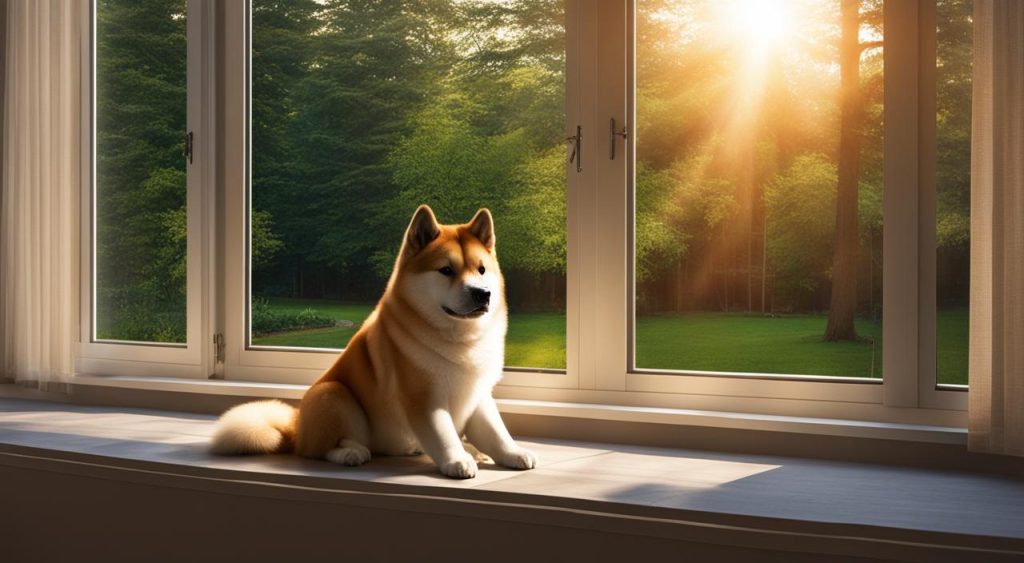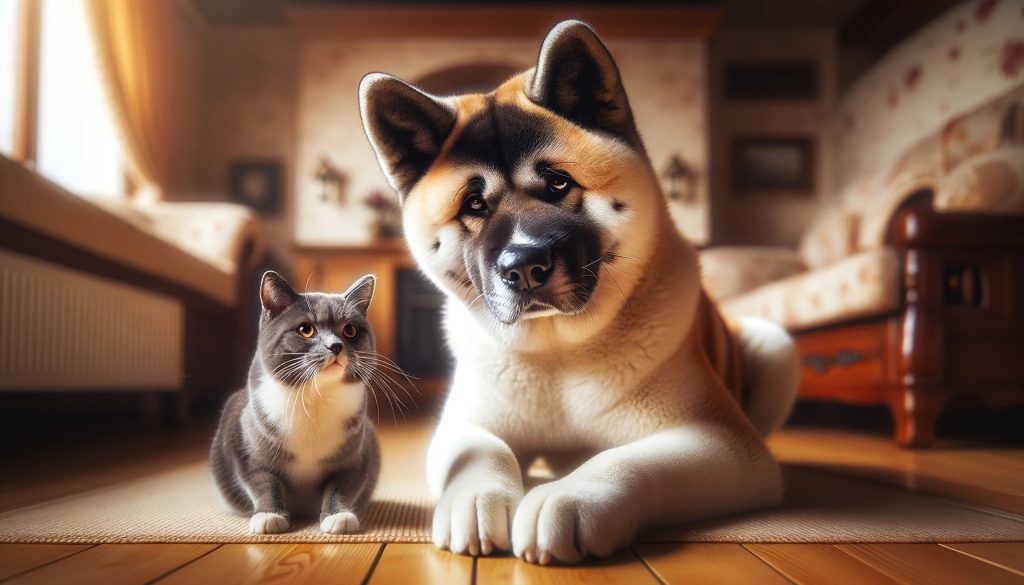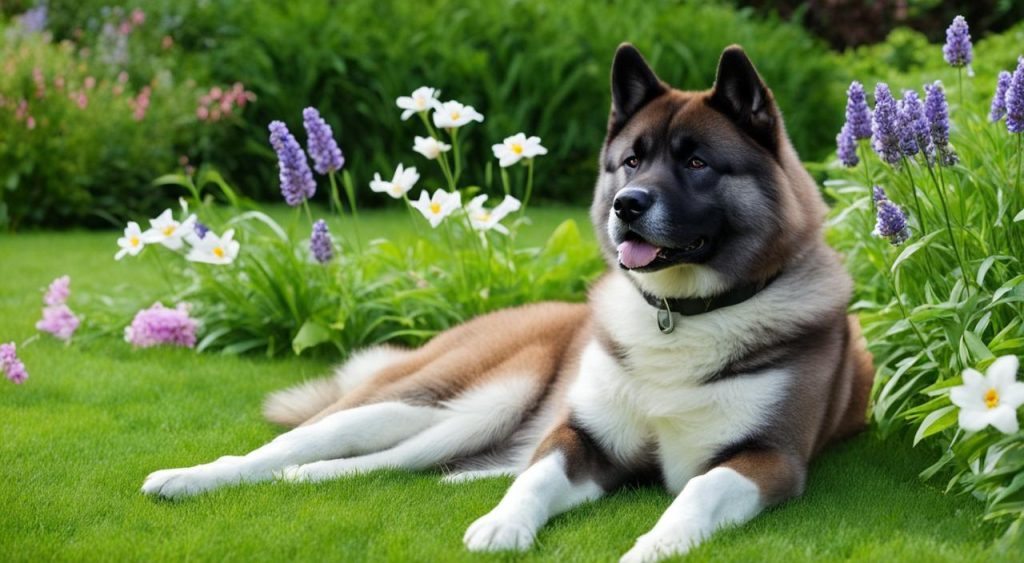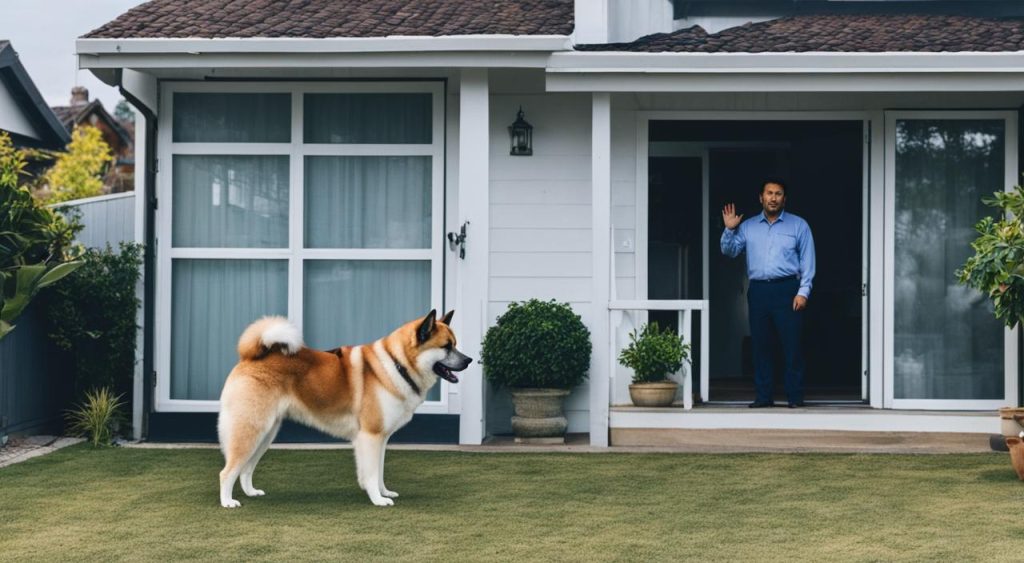If you’re considering bringing an Akita into your life, you may be wondering if they can live alone. The Akita breed is known for their independent nature, loyalty, and attachment to their families. In this article, we’ll delve into the Akita’s temperament and explore whether they can thrive in a solo living arrangement.
The Akita is a large and powerful breed that originated in Japan. Originally bred as guard dogs, Akitas possess a strong prey drive and are known for their protective instincts. While they can adapt well to family life, they require experienced owners and an active household to meet their specific needs.
Akitas have specific exercise requirements and can be wary of strangers. They require proper socialization and training from a young age to ensure they grow up to be well-rounded and confident dogs. Additionally, Akitas are prone to certain health issues such as hip dysplasia and eye problems, which require regular veterinary care.
While Akitas can be left alone for short periods, it’s important to note that they can experience separation anxiety if left alone for too long. This can manifest in destructive behavior or excessive barking. Akitas require mental and physical stimulation to keep them happy and engaged. Regular grooming is also necessary to manage their shedding.
When it comes to living arrangements, Akitas can fit well in families with older children. However, they may not be the best choice for households with smaller pets, as Akitas have a strong prey drive and may not tolerate them well. Understanding the temperament and specific needs of the Akita breed is essential before deciding if they can live alone.
Key Takeaways:
- The Akita breed is known for their independent nature and loyalty to their families.
- Akitas require experienced owners and an active household to meet their specific needs.
- Proper socialization and training are crucial for Akitas to grow up well-rounded and confident.
- Akitas can experience separation anxiety if left alone for too long.
- Regular mental and physical stimulation, along with grooming, are necessary for Akitas.
Understanding the Akita’s Temperament and Space Needs
The Akita breed is known for its unique temperament, characterized by loyalty and independence. While they may be aloof with strangers, Akitas are incredibly devoted and affectionate towards their owners. This independent nature requires a firm yet loving owner who can establish boundaries and provide consistent training.
Akitas can display aggression towards other dogs, making proper socialization an essential part of their upbringing. It is crucial to expose them to various situations, people, and animals from a young age to ensure they are comfortable and well-behaved in different environments.
Due to their large size, Akitas have specific space requirements. They need ample room to move around comfortably and stretch their legs. This is especially important when considering the living arrangements for an Akita in an apartment setting.
Creating a suitable living environment for an Akita in an apartment requires careful consideration. It is necessary to provide them with a designated sleeping area where they can rest and feel secure. Access to fresh water and interactive toys is also important to engage their minds and prevent boredom.
Regular exercise is vital for Akitas to maintain their physical and mental well-being. They have a high energy level and benefit from both physical activities and mental stimulation. Daily walks, playtime, and training sessions are crucial to prevent them from becoming bored and engaging in destructive behavior.
Akitas can thrive in various living conditions, including apartments, as long as their specific temperament and space needs are met. By understanding their unique characteristics and providing them with a suitable environment and regular exercise, you can ensure a happy and content Akita companion.
Tips for Managing an Akita’s Time Alone Effectively
Leaving an Akita alone should never be for more than four hours at a time. This is important to ensure their well-being and prevent any unnecessary distress. Akitas are social animals and thrive on human interaction, so it’s crucial to provide them with the mental and physical stimulation they need to remain content.
To keep your Akita occupied while you’re away, provide them with puzzle toys or interactive games that challenge their problem-solving abilities. This will help prevent boredom and destructive behavior. Additionally, consider rotating their toys to keep their interest levels high.
Early and consistent socialization is key to ensuring your Akita is comfortable with other dogs and strangers. Introduce them to various environments, experiences, and people from a young age. This will help prevent any potential aggression or fearfulness and make them well-rounded companions.
Training an Akita requires firm yet fair techniques. They are independent dogs and can be mistaken for being stubborn. Consistency and positive reinforcement training methods work best with Akitas. Obedience training, including teaching basic commands such as sit, stay, and come, is essential for managing their behavior in an apartment setting.
Addressing and managing separation anxiety is crucial for Akitas. Gradually acclimate them to being alone by starting with short periods and gradually increasing the duration. Creating a safe and comfortable space for them while you’re away, with their bed, water, and toys, can also help alleviate their anxiety.





